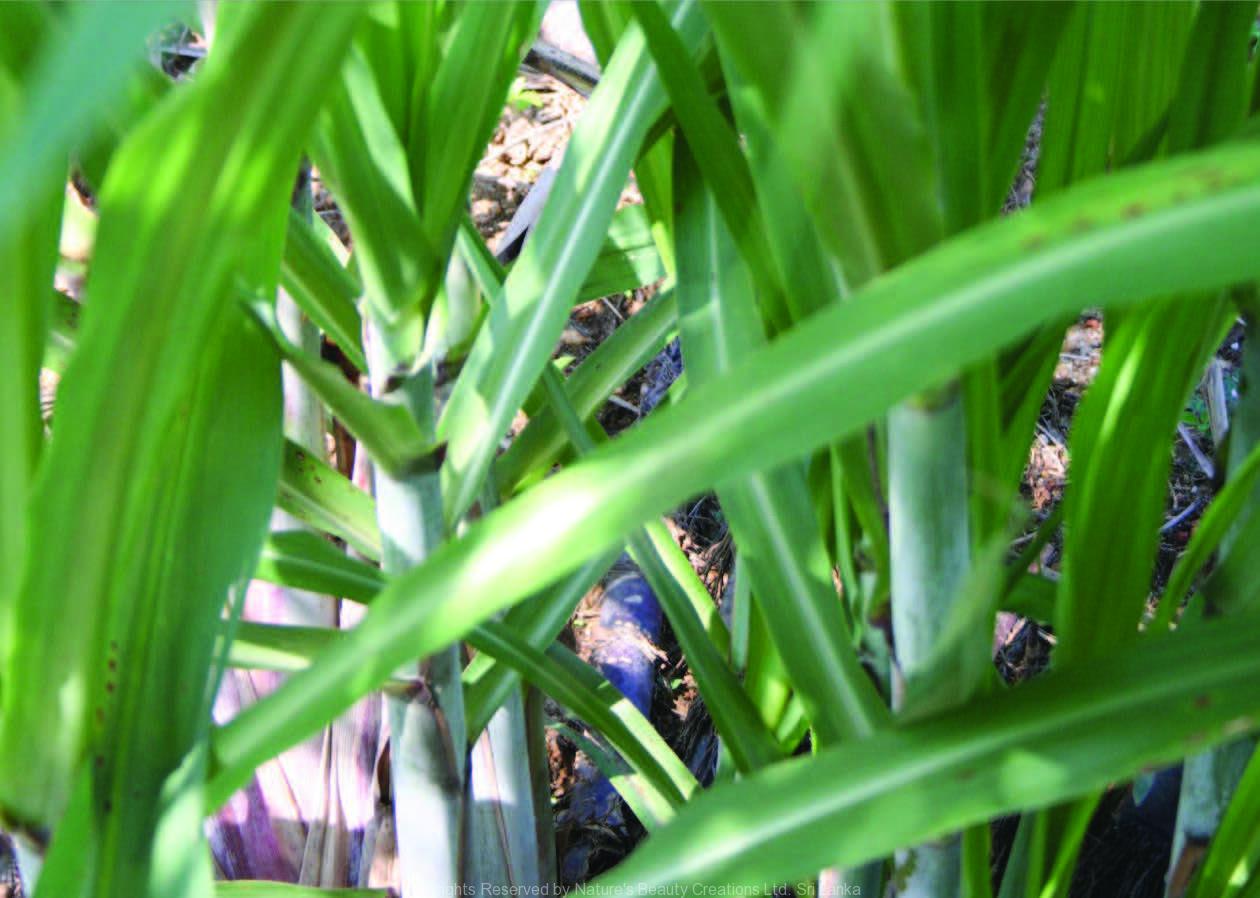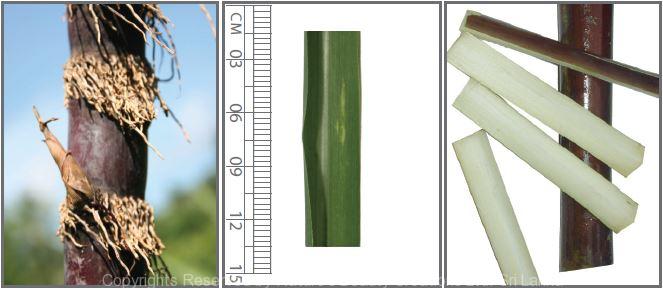

Traditional Knowledge
Useful plant parts :
Root, leaf and stem
Uses in traditional medicine :
- One table spoon of leaf decoction is taken before meals for dry cough
- Fresh stem juice with crushed ginger is given for stomach ache in children
- Juice of stem is given to women in labour, for ulcers in skin mucous membrane and for diarrhoea
- Treacle acts as a laxative
- Root acts as a demulcent, emollient, diuretic, stimulant and antiperiodic in malarial affections
Scientific Research
Chemical constituents:
Flavonoids: naringenin, tricin, apigenin and luteolin derivatives from plant; flavonoid glucosides: tricin glucoside and orientin from cane juice; fatty acids: palmitic, linoleic, linolenic acids and policosanol: a mixture higher primary aliphatic alcohols from plant wax
Bioactivity :
Tricin glucoside: antioxidative, antiproliperative; anthocyanin extract from peel: anticancer; polyphenol rich fraction of plant: immunostimulative; fatty acids: anti-inflammatory
Clinical:
Policosanol has lowered cholesterol in healthy volunteers and patients with type II hypercholesterolaemia
References : Almeida, J. M. D. et al., (2007), Antiproliferative and antioxidant activities of a tricin acylated glycoside from sugarcane (Saccharum officinarum) juice, Phytochemistry, 68, 1165–1171. Berthold, I. G. and Berthold, H. K., (2001), Policosanol: Clinical pharmacology and therapeutic significance of a new lipid-lowering agent, American Heart Journal, 143(2), 536-365. Hikosaka, K et al., (2007), Immunostimulating effects of the polyphenol- rich fraction of sugar cane (Saccharum officinarum L.) extract in chickens, Phytother Res, 21(2), 120-5. Ledón, N. et al., (2005), Further studies on a mixture of fatty acids from sugar cane (Saccharum officinarum) wax oil in animal models of hypersensitivity, Planta Med, 71(2), 126-9. Maurício Duarte-Almeida, J. et al., (2006), Antioxidant activity of phenolics compounds from sugar cane (Saccharum officinarum L.) juice, Plant Foods Hum Nutr, 61(4), 187-92. Pallavi, R. et al., (2012), Anthocyanin analysis and its anticancer property from sugarcane (Saccharum oficinarum) peel, International journal of research in pharmacy and chemistry, 2(2), 338-345.
Copyrights Reserved By
Natures Beauty Creations



